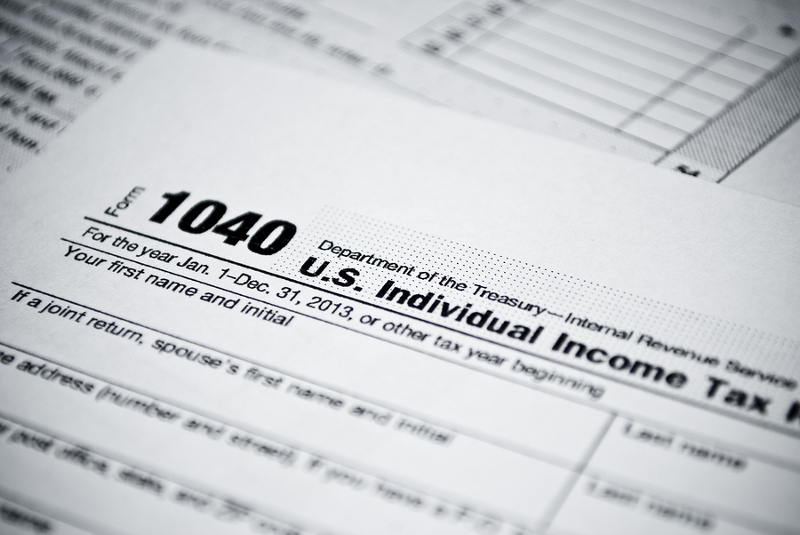Tax season in the digital age has unfortunately given rise to a new necessity aside from filing and paying taxes with the IRS. That is, taxpayers must also be on their guard and remain wary for tax scams intended to deprive them of their hard-earned money. The Hoffman Law Offices is dedicated to protecting taxpayers from scams. If your tax preparer has promised something that seems too good to be true, come in for a second opinion. Performing due diligence now and preventing tax problems is almost always more cost effective than taking a risk and hoping for the best.
If a tax strategy seems too good to be true it may be fraudulent, a frivolous tax argument or an abusive tax structure
If your tax preparer promises to completely eliminate your tax liability or claims to have a “fool-proof” tax strategy that will reduce your taxes regardless of your withholdings, you should proceed with extreme suspicion. In fact, it would be foolish not to seek a second opinion from an independent tax professional after being promised such things. Many times, these promises are based on the tax preparer’s willingness to claim excessive refund credits or engage in other forms of fraud. They may suggestion filing false income tax returns or other false documents to conceal income or assets. The tax preparer may even request that you sign a blank return so that they can engage in their scam without worrying about the taxpayer detecting the scam and reporting the preparer. Any of these behaviors should raise a red flag for a tax payer.
The abusive tax structure is often related to the promises mentioned in the previous paragraph, but these types of scams are often more difficult to detect because they transform an otherwise legitimate tax strategy into a fraudulent or otherwise illegal structure. Abusive tax structures are most common when dealing with offshore tax shelters, captive insurance companies, and trusts. If the abusive shelter is an offshore tax scam you are likely to be exposed to FBAR liability along with potential civil tax fraud charges or criminal tax evasion charges.

Frivolous tax arguments are another common grounds for tax scams. For years arguments such as, “filing taxes is voluntary” have been advanced in court by unrepresented tax defendants only for a judge to dismiss the argument as frivolous or impose a fine of $5,000 for filing a frivolous return. And to be clear, the tax system is voluntary in the sense that a taxpayer is initially permitted to assess, report and pay his or her own tax. In other words, it is not the government or one of its agencies that determines the initial tax bill. The requirement to file taxes, however, is not voluntary. Advancing frivolous tax arguments has been deemed a willful act, carrying criminal tax penalties.
Phone scams and email phishing scams are used to defraud taxpayers
Confidence-based tax scams have existed for as long as taxes have been collected. The caller or email sender will often pretend to be an IRS agent, a police officer or a government official. They will state that you owe a tax debt and failure to pay the debt will result in severe consequences. A favorite threat is that the local sheriff is standing by and will be dispatched to your home to arrest you if you fail to resolve the issue. But, here’s the catch – they’ll tell you that payment must be sent immediately via a wire transfer, money order, bank check or other form of transfer that cannot be recovered or refunded.
Once you have sent the funds, you may soon realize that this wasn’t actually the IRS. However you will still have your legitimate tax obligations to satisfy. Following a significant loss, that tax obligation may be impossible to pay costing you additional money in interest and penalties.
File early or risk theft of your return due to identity theft
Electronic tax filings have made filing taxes much more convenient than the old days of where a paper return was the only option. Taxpayers receive confirmation that their return was received and accepted more quickly and, often, can access any tax return within several days of filing. However, the crime of identity theft has somewhat complicated the otherwise beneficial electronic filing process. An individual who comes to possess personally identifying information including your name, address, and Social Security number may claim or attempt to claim your tax refund by fraudulently filing in your name.

The best way to prevent this type of fraud from occurring is to file as soon as you receive all pertinent tax information and you are able to do so. Unless the circumstances are misinterpreted due to other signs of fraud being present, identity theft is unlikely to result in criminal tax charges but it will represent a major headache to correct. To combat this type of tax fraud, the IRS is currently piloting an identity protection PIN system. Unfortunately the PIN system is still a pilot program and it is only available for individuals at a high risk of identity theft.
If you are suspicious about what your tax preparer has promised or fear that you have already fallen victim to a tax scam, call the Hoffman Law Offices. We work diligently and strategically to correct tax problems. To schedule a confidential consultation, call (800) 897-3915 or contact us online.


